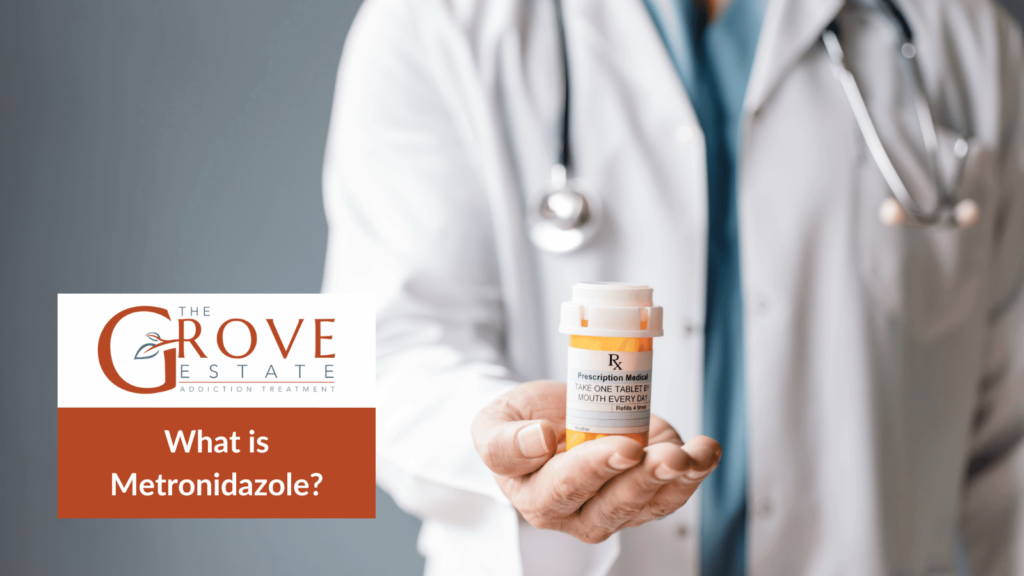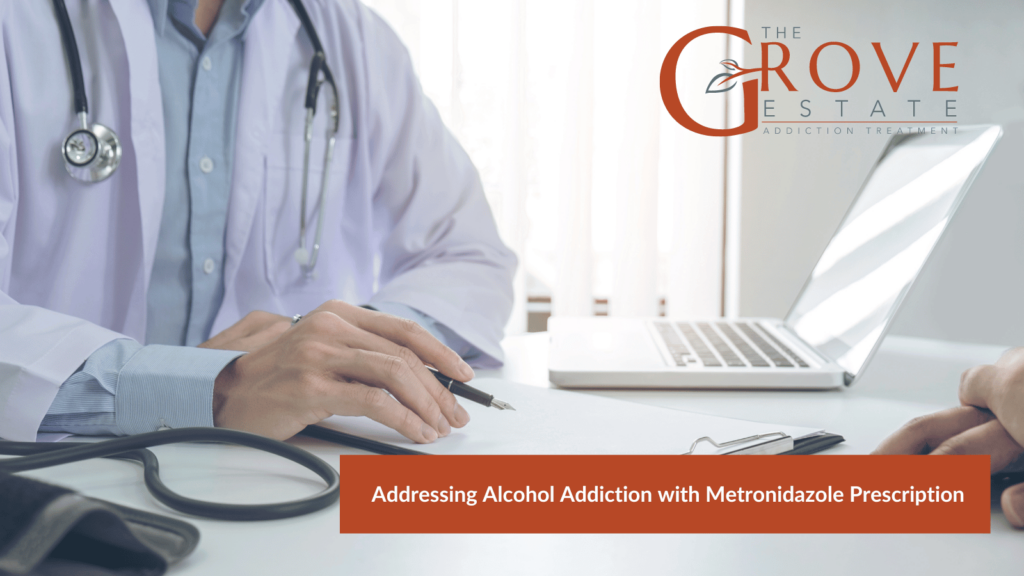Mixing alcohol and antibiotics is a subject surrounded by caution and inquiry, particularly with medications like metronidazole. Known for its stringent interaction with alcohol, metronidazole, when combined with alcohol, can lead to severe and unpleasant side effects. According to a study by the Journal of Antimicrobial Chemotherapy, up to 30% of patients treated with metronidazole experience adverse reactions when alcohol is consumed during treatment. This highlights the importance of understanding the risks and mechanisms behind this interaction to ensure patient safety and the effective use of the medication.

What is Metronidazole?
Metronidazole is a powerful antibiotic and antiprotozoal medication that is used to treat a wide range of bacterial and protozoal infections. It works by damaging the DNA of the bacteria or protozoa, effectively killing them or preventing their growth and reproduction. This mechanism disrupts the cell’s nucleic acid synthesis, leading to the death of the microorganisms.
Metronidazole is commonly prescribed for treating bacterial vaginosis, trichomoniasis, infections of the dental and bone, gastrointestinal infections caused by Helicobacter pylori, and certain infections caused by anaerobic bacteria (bacteria that do not require oxygen to grow). It’s also used in the treatment of infections of the skin, respiratory tract, and joints, as well as for the prevention of post-surgical infections.
Can Alcohol and Metronidazole Be Mixed Safely?
Mixing alcohol and metronidazole is generally considered unsafe. The combination can lead to severe and uncomfortable side effects, including nausea, vomiting, flushing of the skin, tachycardia (rapid heartbeat), and even shortness of breath. These reactions are the result of a disulfiram-like effect, which occurs because metronidazole inhibits the body’s ability to break down alcohol, leading to an accumulation of acetaldehyde, a toxic metabolite of alcohol.
Medical professionals strongly advise against consuming alcohol during metronidazole treatment and for at least 48 hours after completing the course. This precaution helps to avoid the potential for severe reactions and ensures the effectiveness of the treatment. If you have consumed alcohol while on metronidazole or are considering doing so, it’s crucial to consult a healthcare provider immediately for guidance.
What is the Interaction Between Metronidazole and Alcohol?
The interaction between alcohol and metronidazole is primarily due to metronidazole’s effect on the enzyme alcohol dehydrogenase, which is involved in metabolizing alcohol. Metronidazole inhibits this enzyme, leading to an accumulation of acetaldehyde, a toxic by-product of alcohol metabolism. Normally, acetaldehyde is quickly converted into less harmful substances, but when its breakdown is inhibited, it can build up to toxic levels, causing the adverse reactions associated with this interaction.
The risks of combining alcohol with metronidazole are significant and can lead to a range of unpleasant and potentially dangerous side effects, such as:
- Nausea and vomiting
- Flushing of the skin
- Tachycardia (rapid heartbeat)
- Headaches
- Shortness of breath
- Low blood pressure
These symptoms are part of the disulfiram-like reaction and can vary in severity from mild discomfort to severe and distressing symptoms. In rare cases, more serious effects, including confusion, visual disturbances, and extreme dizziness, can occur, necessitating immediate medical attention. Given these potential risks, it’s highly advised to avoid alcohol consumption during metronidazole therapy and for 48 hours after completing the treatment.

What Are The Long-Term Effects If You Drink Alcohol While on Metronidazole?
Drinking alcohol while on metronidazole and experiencing the acute disulfiram-like reaction can be deeply unpleasant, but these incidents typically don’t lead to long-term physical health problems once the substances are fully metabolized and cleared from the body, assuming no severe complications arise during the reaction. However, the situation raises concerns about potential long-term implications, especially if the behavior is repeated or involves significant consumption of alcohol.
Long-term Implications:
- Tolerance and Dependence: Repeatedly engaging in alcohol consumption, especially in contexts where it’s advised against due to medication interactions, can increase the risk of developing tolerance or dependence on alcohol.
- Liver Health: Both metronidazole and alcohol are metabolized by the liver. Regular consumption of alcohol, particularly in large quantities, can strain the liver, leading to a risk of liver damage over time. Combining alcohol with metronidazole may exacerbate this risk, especially in individuals with pre-existing liver conditions.
- Effectiveness of Treatment: Regularly consuming alcohol while on treatments like metronidazole may interfere with the effectiveness of the medication in treating the infection or condition, potentially leading to chronic or recurrent infections.
- Psychological Effects: Experiencing severe adverse reactions can have psychological impacts, such as increased anxiety around medication use or alcohol consumption, potentially affecting one’s willingness to adhere to necessary treatments in the future.
When Is It Safe to Drink Alcohol After Metronidazole?
To determine when it’s safe to drink alcohol after taking metronidazole, a general guideline is to wait at least 48 hours after your last dose. This waiting period allows your body to process and clear the medication, reducing the risk of adverse reactions. However, the exact timeframe can vary based on individual factors such as your metabolic rate, the dosage and duration of your metronidazole treatment, the health of your liver, and your overall health condition. Since these variables can influence how quickly metronidazole is eliminated from your system, consulting with a healthcare provider is recommended for advice tailored to your specific situation.
Is Having a Small Amount of Alcohol with Metronidazole Safe?
Consuming even a small amount of alcohol while taking metronidazole is not recommended due to the risk of severe disulfiram-like reactions. Guidelines strongly advise against any alcohol intake during treatment and for 48 hours after the last dose to ensure safety.
Even minimal alcohol consumption with metronidazole can trigger adverse effects, such as nausea, vomiting, flushing, and rapid heart rate. These reactions can occur because even low levels of alcohol can lead to the accumulation of acetaldehyde when metronidazole is present, posing significant discomfort and health risks.
What is a Common Misconception of Mixing Metronidazole and Alcohol?
The belief that a tiny amount of alcohol is safe with metronidazole is a myth needing clarification. The truth is, even small amounts of alcohol can lead to severe reactions due to the medication’s interaction with alcohol metabolism. This interaction is not a mere cautionary tale but a well-documented medical advisory based on the potential for significant adverse effects.
A common misconception is that topical forms of metronidazole (such as creams or gels) don’t pose the same risks as oral forms when combined with alcohol. However, while the risk is lower, there is still a possibility of a reaction, indicating that caution should be exercised regardless of the medication form.
Are There Special Considerations for Different Individuals?
Individuals with a history of liver disease, alcohol dependence, or certain genetic conditions affecting alcohol metabolism are at higher risk when combining metronidazole with alcohol. These groups should exercise even greater caution and strictly adhere to medical advice regarding alcohol consumption.
Factors such as age, overallPersonal Health Factors: health, and concurrent use of other medications can also influence how one might react to mixing metronidazole and alcohol. It’s important for each individual to consult with their healthcare provider for guidance tailored to their health profile.
What are Some Additional Tips for Taking Metronidazole?
Best Practices:
- Complete the Full Course: Ensure you complete the entire prescribed course of metronidazole to fully treat the infection and avoid resistance.
- Stay Hydrated: Drink plenty of water to help your body process the medication and reduce the risk of side effects.
Avoiding Common Mistakes:
- Skipping Doses: Missing doses can reduce the effectiveness of the treatment and should be avoided.
- Ignoring Side Effects: Report any adverse reactions or side effects to your healthcare provider immediately, rather than dismissing them as inconsequential.

Addressing Alcohol Addiction with Metronidazole Prescription
When prescribing metronidazole to individuals struggling with alcohol addiction, healthcare providers face significant challenges. The necessity to abstain from alcohol during treatment with metronidazole is imperative due to the risk of severe adverse reactions, yet it may be particularly challenging for those with an alcohol dependence. Addressing this issue requires open communication between patients and healthcare professionals, where discussions about alcohol use are approached in a non-judgmental manner.
Tailoring support and possibly considering alternative treatments that don’t interact as severely with alcohol may be necessary. For those with alcohol addiction, seeking professional help is crucial. An integrated care approach, combining the expertise of healthcare providers and addiction specialists, can offer a comprehensive plan to manage both the infection and alcohol dependence. Access to addiction resources, including support groups, counseling, and therapy, alongside medical supervision to monitor progress and health, is essential for navigating the complexities of treating infections with metronidazole in patients facing alcohol addiction.
How long after finishing metronidazole can I safely consume alcohol?
It’s recommended to wait at least 48 hours after the last dose of metronidazole before consuming alcohol to ensure the medication is fully cleared from your system and to avoid adverse reactions.
What specific side effects can occur if I drink alcohol while taking metronidazole?
Drinking alcohol while on metronidazole can lead to severe side effects, including nausea, vomiting, flushes, headache, and a rapid heartbeat, due to a disulfiram-like reaction.
Are there any foods or beverages I should avoid besides alcohol while taking metronidazole?
While taking metronidazole, avoid consuming products containing propylene glycol and limit your exposure to direct sunlight or UV rays, as the medication can increase your sensitivity.
Can I use mouthwash that contains alcohol while taking metronidazole?
It’s best to avoid mouthwashes containing alcohol during metronidazole treatment, as they might provoke a similar reaction to drinking alcohol. Opt for alcohol-free alternatives instead.
How does consuming alcohol while on metronidazole compare to mixing alcohol and NyQuil?
Consuming alcohol while on metronidazole poses significant risks due to the medication’s interaction with the body’s ability to process alcohol, leading to potentially severe disulfiram-like reactions. These include nausea, vomiting, and an increased heart rate. This interaction underscores the critical importance of avoiding alcohol during metronidazole treatment. For more insights into mixing medications with alcohol, explore the dynamics between alcohol and NyQuil, which also presents its own set of risks and considerations due to the sedative effects of NyQuil and the depressant nature of alcohol.
In contrast, while NyQuil and alcohol both depress the central nervous system, leading to increased drowsiness and potential respiratory issues, the reaction is different from the metabolic conflict seen with metronidazole and alcohol. However, both scenarios highlight the general principle that mixing alcohol with medication can be dangerous and is best avoided. Understanding these interactions can inform safer choices regarding alcohol consumption while on various medications.
Can addressing alcohol dependency affect treatment with metronidazole?
Addressing alcohol dependency is crucial in the context of treatment with metronidazole. Individuals struggling with alcohol use may find it particularly challenging to abstain from alcohol during their treatment period, which is essential to avoid severe adverse reactions. Engaging with an aftercare facility can provide the necessary support and resources for managing alcohol dependency effectively, ensuring a safer treatment course with metronidazole.
An aftercare facility offers comprehensive support for individuals after the initial phase of alcohol dependency treatment, focusing on relapse prevention and sustainable recovery. This support is vital for patients prescribed medications like metronidazole, where alcohol abstinence is non-negotiable. By addressing the root causes of alcohol dependency and developing coping strategies, patients can better navigate the complexities of their treatment, avoiding the risks associated with mixing alcohol and medication.

Share This Post



